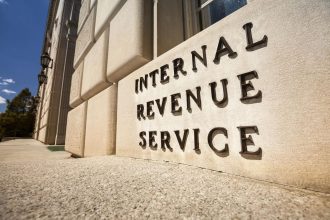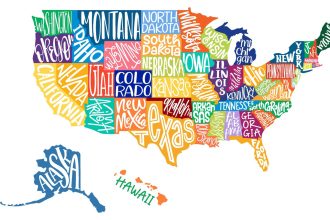Mary Wood of Meadows Collier discusses recent updates on the employee retention credit, from the IRS’s moratorium on new claims to the potential effect of pending legislation.
This transcript has been edited for length and clarity.
David D. Stewart: Welcome to the podcast. I’m David Stewart, editor in chief of Tax Notes Today International. This week: taking credit.
When we last covered the employee retention credit back in August, it was as the credit was getting mainstream attention, and issues related to it were starting to come under scrutiny. And we’ll link to that episode in the show notes.
Since then, the IRS has issued a moratorium on claims, and the House has passed the Tax Relief for American Families and Workers Act, both of which seemingly are having a large effect on the ERC.
Here to talk more about this is Tax Notes investigations editor Lauren Loricchio. Lauren, welcome back to the podcast.
Lauren Loricchio: Thanks for having me.
David D. Stewart: I understand you recently talked with someone about this. Who did you talk to?
Lauren Loricchio: I spoke with Mary Wood, a partner at Meadows Collier. She’s a tax attorney who handles disputes with the IRS and tax fraud cases.
David D. Stewart: And what did you talk about?
Lauren Loricchio: Our conversation touched on the IRS’s moratorium on processing new claims, the impact it’s having on employers, and some of the legal options available to businesses with legitimate claims. We discussed legislation pending in Congress that would end the program early and how that’s impacting taxpayers. We also spoke about the IRS’s concerns about fraud and what people can expect to see from the IRS on that moving forward.
David D. Stewart: All right, let’s go to that interview.
Lauren Loricchio: Mary, welcome to the podcast.
Mary Wood: Well, thanks so much for having me, Lauren. Very happy to be here today.
Lauren Loricchio: So for our listeners who aren’t familiar with the employee retention credit, can you explain why the IRS is so concerned about improper claims and fraud related to the credit?
Mary Wood: Sure. So, just as a little bit of background, the employee retention credit, it was enacted as part of the March 2020 CARES [Coronavirus Aid, Relief, and Economic Security] Act, and really the objective of the credit was to encourage employers to retain employees during the trying economic times that many businesses were experiencing during COVID and during the year following COVID. So primarily the benefits were in 2020-2021.
And I think initially one of the issues is that Congress was originally budgeting about $83 billion for ERC claim payments because this is a refundable credit. And so the government was expecting to receive claims that pay out about $83 billion in claims. And what ended up happening is that they paid out an amount that was significantly higher than the $83 billion — about $230 billion. So over a 250 percent increase in the budgeted amount.
And so what they saw over time was that the claims started to increase rather rapidly, and it got to the point where because claims were being submitted so often and in such large volumes, that they really weren’t able to get those claims processed and reviewed so that they could look at the viability of the claims. And what happened as well is that you ended up getting a lot of what now the IRS are calling promoters.
So a number of companies started popping up, and they would send very aggressive solicitations to taxpayers. And it wouldn’t just be from one company. Even I individually received solicitations and actually am still receiving solicitations. You know, “Hey, you’re entitled to X, Y, Z amount.” And in some cases, these were very large amounts. So taxpayer receives a letter, receives a phone call: “Hey, did you know you’re entitled to a million-dollar credit from this employee retention tax credit program?”
And of course, once these taxpayers who are not super knowledgeable about the program, the eligibility, what’s required, etc. — once they hear that information and they hear it from multiple sources multiple times, you have a lot of taxpayers who think, “Oh gosh, I need to look into this.”
And what ended up happening is some of these ERC credit companies, which the IRS will call credit mills or promoters, they were interpreting the requirements rather loosely or overlooking some requirements. And because of that, they were telling these taxpayers they were entitled to these credits. The taxpayers, of course, think this is fantastic. And of course, any business owner would like an influx of capital if they’re entitled to it under a program that the government has put out there.
So what happened as a result of that is you had this large, large volume of claims, this very large — again, $230 billion of refunds paid out by the government. And now the IRS is saying, “Whoa, what’s going on? We need to put the brakes on. We need to take a look at what’s going on here. We need to look at these claims and see which claims are viable. And more importantly, we need to figure out who’s out there marketing these credits to taxpayers who are not eligible for those credits.”
Because that’s what’s really driving the problem and driving the issue with the IRS. And so now, we’re in a position where the IRS is having difficulty processing claims. And that’s, of course, unfortunate for the taxpayers, the businesses that had legitimate viable claims. Because there are a number of taxpayers who did legitimately qualify under this program, and there was a good, valid reason for Congress enacting this tax credit program. And so it’s just unfortunate that the way that things transpired that we’re now in a position where some of those taxpayers are not receiving their refunds.
Lauren Loricchio: In September of last year, the IRS placed a moratorium on processing new credit claims for the credit so it could examine the claims more closely. What sort of impact has it had on claims for the credit?
Mary Wood: Well, of course, any claims filed after the moratorium have not been processed. And what we’re hearing is that there’s been a moving target because initially the moratorium was set to potentially expire at the end of 2023, but now the IRS is saying they’re continuing the moratorium. There was some discussion that it may end in the spring and they may begin processing those claims that had been filed during that time.
But the problem is there’s still a huge backlog of claims that were filed prior to the moratorium. Because when the IRS saw that there were all of these fraudulent claims being filed, they decided they needed to take a much closer look at each of the claims. So the processing time has been greatly extended.
So we have a number of clients who filed during the moratorium, haven’t heard anything, and now they’re in a position where they have to decide, “OK, what do I do if I want to see action taken?” Because we don’t know when the end of this moratorium may come. “What are my options?” And that’s where we’re seeing, in some instances, taxpayers now filing suits for refund in federal district court to try to get some movement on those claims.
Lauren Loricchio: Are you seeing a lot of those types of lawsuits?
Mary Wood: My firm, we have filed a suit recently — two of my partners filed a suit in the last few months. And there’ve been a few more popping up around the country, but I think you’ll continue to see more and more as time goes on. Because again, especially because there’s a number of taxpayers who really went through and checked all the boxes. And especially if they were filing after the moratorium, there was a lot more guidance out. It was very clear what the IRS was looking at. And so a lot of those taxpayers that filed, they really went through and checked the boxes. We have clients — they have their documents ready and their backup ready to support their claim. And so the longer period of time that passes and that moratorium isn’t lifted, the more frustrated they’re going to get. And I think you will end up seeing more suits filed.
Lauren Loricchio: The IRS offered a special employee retention credit voluntary disclosure program (VDP), which recently closed. How did that program work?
Mary Wood: So that program was interesting. It was a relatively short program, and as you mentioned, it ended recently on March 22. They have said that they may reopen that program, and it was a fairly generous program if you thought that you had an issue with your filing.
So if you thought that you had a claim, you filed the claim, you actually received the refund, and you deposited or cashed the check — that’s one of the eligibility requirements — then you were able to submit an application to the program. It did require you to provide a fairly significant amount of detail as far as what was originally claimed, what you believe the corrected amount should be, or I guess I should say the amount of refund that should be returned.
And if you were accepted into the program, so if they agreed that you were eligible, then you would pay back 80 percent of the amount refunded with no penalties and interest. So essentially you’re getting to keep 20 percent of the refund that really that taxpayer wasn’t entitled to in the first place.
I think one of the issues with that program is that in the traditional voluntary disclosure program, although it’s not a criminal amnesty program, it is probably the closest thing that you’re going to get to a criminal amnesty program in that if you participate in the traditional voluntary disclosure program, it is a factor to be considered with respect to referral for criminal prosecution. So generally, when we have clients that participate in that program, we have not had any issues with them with respect to criminal investigations following the voluntary disclosure.
But the ERC VDP specifically said that if you willfully filed a fraudulent ERC claim or you assisted or conspired in that conduct, that participating in the ERC VDP would not exempt you from a potential criminal investigation or prosecution, so you didn’t have that protection.
Lauren Loricchio: In what situation would the regular voluntary disclosure program make more sense for someone?
Mary Wood: I think it would make more [sense] if you did believe there was potential criminal exposure. Generally when we have clients come in, whether it’s ERC related or income tax related, there’s a variety of reasons or tax-related issues that could lead them into the voluntary disclosure program. But it’s generally for taxpayers who willfully misrepresented items on their tax returns. So whether that’s a claim for refund or that’s an original filing, that’s a type of taxpayer that that benefits.
And so if you have a taxpayer who filed an ERC claim and there are indicators that that taxpayer acted willfully, then that taxpayer could benefit from those criminal protections. But of course, you don’t get the very generous financial structure, so there’s not that same financial structure as far as paying back that 80 percent and keeping 20 percent that you have in the ERC VDP.
In fact, you’re likely going to pay all of the refund. You’re going to potentially pay a very large penalty, maybe a 75 percent penalty on the largest order. That’s generally how the voluntary disclosure program works. And then you’re going to pay interest as well. So it’s going to be a much more expensive program, but it could provide protections for those taxpayers that really believe that they have criminal exposure.
Lauren Loricchio: Do you think it would make sense for the IRS to reopen the ERC voluntary disclosure program?
Mary Wood: I think it probably would. I think that they believe that it was successful. If you look at the numbers, I think they had 500 taxpayers that had completed the program as of, I think, March 22. And through those taxpayers, they had brought in $225 million from ERC VDP submissions, and I think they had another 800 submissions that were still being processed and more that were going to be filed at the last minute that weren’t in those counts. So I think if you look at what it’s yielded in terms of revenue — now again, when you’re looking at the overall amount of ERC claims paid out, $230 billion, maybe $225 million doesn’t sound like a lot, but at least it’s moving the needle. And when those additional submissions are processed, you would hope that maybe you’re double that, maybe even more than that.
And I think what’s important is, again, when you enter into the ERC VDP, you provide this application that has a lot of detailed information about the original claims, but it also asks — and this is significant — it asks for information about the individuals that assisted with the filing of those claims. So those could potentially be the promoters, the return preparers, etc.
So they’re getting information on these tax preparers and/or promoters that they’re interested in pursuing criminally. They’ve said they’re interested in pursuing and they have pursued promoters criminally, and they are more at the beginning stages that they have indicated that they will be starting more civil investigations of those promoters.
So I think, even just with respect to that data that they’re going to be able to mine to give them those leads for potential civil investigations of promoters and/or criminal investigations of promoters, that it would be worthwhile for them to reopen that program.
Lauren Loricchio: The Tax Relief for American Families and Workers Act of 2024 passed the House earlier this year. The legislation would sunset the ERC early and impose stiffer penalties on promoters of the credit. What sort of impact is it having on claims?
Mary Wood: Well, I think initially, you know, it had somewhat of a — after the would-be deadline passed in January, I think it had initially maybe a chilling effect on claims. But now that we’ve had such a long period of time pass since that legislation passed the House and it’s still pending, I think you’re starting to see perhaps more claims, more businesses, more taxpayers consider filing claims. And frankly, I think if you have a taxpayer that has a legitimate claim — because at this point it’s certainly possible that that pending legislation will ultimately be passed and the deadline will be set at the end of January 2024 and be a retroactive deadline so that it would have already passed. But it’s also possible that they pass it in May and make that deadline the end of May or the end of June or something later.
And so I think it’s worthwhile if you have a legitimate claim to file that claim because at this point, we don’t have a definitive answer on that deadline with respect to, of course, 2021 claims.
Lauren Loricchio: In terms of addressing fraud related to the credit, what do you think we can expect to see from the IRS moving forward?
Mary Wood: Well, I think the IRS has been very clear that they are continuing very aggressively with exams, so civil exams where there’s always the possibility of a fraudulent claim penalty. They’re looking — again, we’re talking about civil promoter investigations, so they’re going to be really aggressive. They’ve done a lot of training with respect to civil agents and criminal agents so that they know what to look for when they’re looking at these claims. There’ve been some that they’ve identified just by looking at the claim and knowing enough about the businesses to know they didn’t qualify. And in those cases, they’ve sent letters to taxpayers that said, “Hey, you don’t qualify, and we’re assessing you the amount of the credit that was refunded.”
So I think you’re going to continue to see them be extremely aggressive on the civil side, whether it’s examining the taxpayers. And if they think the taxpayers were in some way complicit with filing claims that they knew to be fraudulent, especially if there’s evidence that those taxpayers were providing incorrect information to the promoters or the preparers that would have informed the promoter or preparer’s decision to file the claim, then I think you’re going to have the IRS be very aggressive in pursuing those taxpayers, either on the civil side in an exam and looking at fraud penalties, or potentially through criminal investigation. And I think the same thing with promoters. I think the IRS is going to look at going after promoters aggressively both through criminal investigation and also through civil promoter investigations.
Lauren Loricchio: Do you have any final thoughts on this?
Mary Wood: Again, I think if you’re a business and you have a legitimate claim, I know it’s very up in the air right now as far as what’s going to happen on the deadline for filing claims for 2021. But I think if you have a legitimate claim, have someone look at it. Again, you want to make sure you’re checking all of the eligibility boxes, but go ahead and file that claim.
And also, if you filed a claim and there’s any question about whether or not it was a valid claim, consider having another professional look at it and determining, do you need to consider if you’re eligible for the withdrawal program, which you’re only eligible for if you have not received the payment on a claim or you haven’t cashed or deposited [the] check you’ve received — consider whether you want to withdraw the claim. There are eligibility requirements there. It also doesn’t provide any criminal protection, but maybe that’s a good option. Consider whether there’s enough exposure and there’s potential criminal exposure where a taxpayer might want to look at the traditional voluntary disclosure program where the ERC VDP isn’t open, but definitely look at what actions could potentially be taken if there’s an issue.
And then if there are taxpayers out there that believe they filed valid claims and the IRS isn’t acting on them, you may have to consider taking that next step of filing suit. Because the way that things look now with the number of claims in the pipeline, if you don’t take another step, it’s possibly going to be a very, very long time before you hear anything with respect to the IRS’s position on those claims.
And then I think finally, I would just suggest if you have a claim that was submitted, whether it was submitted before the moratorium or after the moratorium, and you still believe it’s a valid claim, make sure that you have your ducks in a row — you have everything that could potentially be asked for by the IRS when they come in and examine that claim because they’re going down the list of what are the requirements? Did you properly aggregate? Did you properly calculate your full-time employees? Did you properly calculate what would constitute wages? And so going down those boxes and making sure that you have a good package of backup information to support every position taken on any ERC claims filed.
Lauren Loricchio: Well, thank you for chatting with me today and for joining us on the podcast.
Mary Wood: Thank you, Lauren. Happy to do it any time.
Read the full article here














